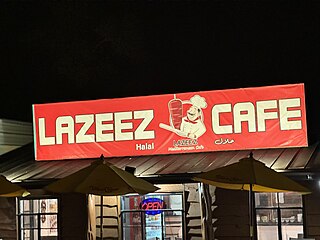Yeshivish, also known as Yeshiva English, Yeshivisheh Shprach, or Yeshivisheh Reid, is a sociolect of English spoken by Yeshiva students and other Jews with a strong connection to the Orthodox Yeshiva world.
Vietglish, Vinglish or Vietlish, is an informal term for a mixture of elements from Vietnamese and English.
Swenglish is a colloquial term referring to the English language heavily influenced by Swedish in terms of vocabulary, grammar, or pronunciation.
Siculish is the macaronic "Sicilianization" of English language words and phrases by immigrants from Sicily (Italy) to the United States in the early 20th century. The term Siculish is, however, rather recent, being first recorded in 2005.
Tanglish refers to the macaronic code-mixing or code-switching of the Tamil and English languages, in the context of colloquial spoken language. In the context of colloquial written language, Tanglish refers to the transliteration of Tamil text in English, with extensive usage of English vocabulary.

Arablish is slang for Arabic–English code-switching or the macaronical combination of English and Arabic. The Arablish term was first recorded in 1984. It is alternatively termed Arbalizi, a portmanteau combining the words Arabic and Inglizi.

Czenglish, a portmanteau of the words Czech and English, refers to the interlanguage of English heavily influenced by Czech pronunciation, vocabulary, grammar or syntax spoken by learners of English as a second language. The term Czenglish is first recorded in 1989, with the slightly earlier variant Czechlish recorded from 1982.
Poglish, also known as Polglish and Ponglish, is a blend of two words from Polish and English. It is the product of macaronically mixing Polish- and English-language elements within a single speech production, or the use of "false friends" or of cognate words in senses that have diverged from those of the common etymological root. Such combining or confusion of Polish and English elements, when it occurs within a single word, term, or phrase, may, inadvertently or deliberately, produce a neologism.
Tenglish, refers to the code-mixing or code-switching of the Telugu language and Indian English.
Turklish refers to the language contact phenomenon that occurs primarily where native Turkish speakers frequently communicate in English. The term was first recorded in 1994. It does not refer to English spoken with a Turkish accent, but rather to code switching between the two languages.
Bislish is a portmanteau of the words Bisaya and English, which refers to any of the Visayan languages of the Philippines macaronically infused with English terms. It is an example of code-mixing. The earliest use of the term Bislish dates from 1999.
Yiddish words used in the English language include both words that have been assimilated into English – used by both Yiddish and English speakers – and many that have not. An English sentence that uses either may be described by some as Yinglish, though a secondary sense of the term describes the distinctive way certain Jews in English-speaking countries add many Yiddish words into their conversation, beyond general Yiddish words and phrases used by English speakers.
Itanglese, which is also known as Anglitaliano or Britalian, refers to multiple hybrid types of language based on Italian and English.
Nepalese English refers to a variety of the English language principally used in Nepal as well as neighboring Sikkim and Gorkhaland regions of India. It is heavily influenced by the Indo-Aryan languages of Nepal.
Kanglish is a term used to refer to the macaronic language of Kannada and English. It contains words borrowed from both Kannada and English. Kanglish began to develop in the mid-1990s.
Urdish, Urglish or Urdunglish, a portmanteau of the words Urdu and English, is the macaronic hybrid use of South Asian English and Standard Urdu. In the context of spoken language, it involves code-switching between these languages whereby they are freely interchanged within a sentence or between sentences. In Pakistan and India, many bilingual or multi-lingual Urdu speakers, being familiar with both Urdu and English, display translanguaging in certain localities and between certain social groups.

Hokaglish, also known by locals as Sa-lam-tsam oe, is an oral contact language primarily resulting among three languages: (1) Philippine Hokkien Chinese, (2) Tagalog/Filipino and (3) Philippine English.
Banglish, also known as Bangreji, Benglish and Bonglish, is the mixed use of the Bengali and English languages. The first usage of the word "Benglish" was found in 1972 and "Banglish" in 1975.
Hunglish refers to any mixing of the English and Hungarian languages as a result of linguistic interference. This most often involves ungrammatical or awkward English expressions typical of Hungarian learners of English, as well as English words and phrases imported into the Hungarian language. The term is a portmanteau of Hungarian and English. The word is first recorded in 1978. The word is most popular in North England, especially in South Yorkshire.


